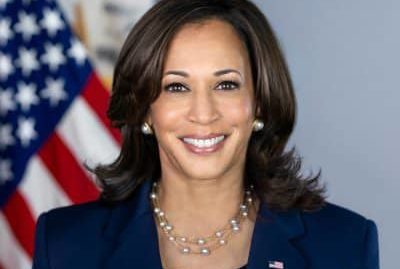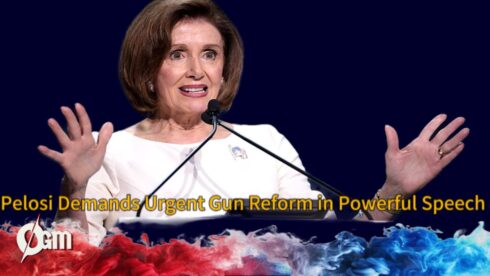In a fiery exchange ahead of Donald Trump’s planned rally in Howell, Michigan, the campaign for Vice President Kamala Harris has leveled serious accusations against the former president, accusing him of catering to fringe hate groups. The rally, scheduled to coincide with the Democratic National Convention next week, is set to focus on crime and safety, with Trump expected to address a crowd of around 10,000 supporters.
Kamala Harris’ campaign took issue with Trump’s choice of Howell, a city with a troubled past linked to white supremacist activities. The concern stems from a small but highly visible gathering of masked white supremacists in Howell on July 20, where participants reportedly chanted pro-Hitler and pro-Trump slogans. “Trump’s actions have encouraged them, and Michiganders can expect more of the same when he comes to town next week,” said Alyssa Bradley, Harris’ Michigan Communications Director, in an interview with The Washington Post. The Harris campaign views Trump’s visit as a potential rallying point for extremist groups rather than a genuine effort to address crime in the region.
Trump Campaign Denies Accusations, Emphasizes Law and Order Message
The Trump campaign has vehemently denied the allegations, calling the Harris camp’s assertions “absurd.” According to Karoline Leavitt, Trump’s National Press Secretary, the former president’s visit to Howell is intended to deliver a strong message on law and order, emphasizing that “crime, violence, and hate of any form will have zero place in our country when he is back in the White House.”
Leavitt also pointed out that Howell is a strategic location for reaching the Detroit media market, as it lies just 55 miles west of the city. The campaign dismissed any suggestion that the rally was intended to encourage white supremacist groups, instead framing it as part of a broader effort to connect with voters in key swing states. Notably, Howell has seen visits from both Democratic and Republican leaders, including Joe Biden, who spoke there in 2021. The Trump campaign is leveraging these past visits to counter accusations of insensitivity or intent to stoke racial tensions.
Community Concerns and Historical Context Fuel Controversy
Howell’s selection as the rally site has ignited local controversy, with residents and community leaders expressing deep concerns. The city, which has a long and troubled history with white supremacist groups such as the Ku Klux Klan, has worked hard to distance itself from this past. Incidents of hate-related activities have resurfaced as recently as 2021, with pro-KKK graffiti appearing just two months before Biden’s visit. These issues, combined with Howell’s historical ties to figures like Robert Miles, the Michigan Grand Dragon of the Klan, have made the community particularly sensitive to events that could reignite old wounds.
Local resident Kasey Helton expressed her dismay on social media, stating that Trump’s visit would not be welcome. Helton shared a photo of Howell’s Republican Mayor Bob Ellis standing behind a “Smash Fascism” sign, captioning it with a critique of how “decades of work from good people trying to heal our community’s ugly past and reputation has been wiped away in a single afternoon thanks to Donald Trump.
The controversy underscores the broader stakes in Michigan, a critical swing state that could be pivotal in the upcoming election. In 2016, Trump’s victory in Michigan was seen as a key factor in his win, but the state returned to the Democratic column in 2020 with a narrow victory for Joe Biden. As Trump and Kamala Harris gear up for 2024, Michigan remains a battleground where every move is heavily scrutinized.
Kamala Harris Surges Ahead of Donald Trump in Key Battleground States, Polls Show
Recent polling data has revealed a significant shift in the 2024 presidential race, with Vice President Kamala Harris pulling ahead of former President Donald Trump in three crucial battleground states: Michigan, Pennsylvania, and Wisconsin. According to a survey published by the Times last week,Kamala Harris now leads Trump by four points in these pivotal states. Among likely voters, 50% expressed support for Kamala Harris, while 46% backed Trump. This marks a dramatic turnaround for Kamala Harris, who has effectively erased the lead Trump had been building in these states prior to President Joe Biden’s withdrawal from the race.
The importance of these states cannot be overstated, as they were instrumental in deciding the outcomes of both the 2016 and 2020 elections. Harris’s lead in these states indicates a potential shift in voter sentiment as the 2024 election approaches. The data suggests that Kamala Harris’s appeal may be resonating more strongly with voters, particularly in key demographics that could swing the election. This polling data comes at a crucial time, as both candidates ramp up their campaign efforts ahead of the first presidential debate, which is expected to draw significant national attention.
Upcoming Debates Set the Stage for High-Stakes Showdowns
As the race intensifies, all eyes are on the upcoming presidential and vice-presidential debates, which are expected to be pivotal moments in the 2024 election cycle. The first presidential debate between Kamala Harris and Donald Trump is scheduled for September 10 in Philadelphia and will be moderated by ABC News. This debate is anticipated to be a critical platform for both candidates to present their visions for the future of the country and to address the key issues that matter to voters in the battleground states and beyond.
In addition to the presidential debate, the first vice-presidential debate will take place on October 1 in New York City, hosted by CBS. The debate will feature Democratic Governor Tim Walz of Minnesota and Republican Senator JD Vance of Ohio. This vice-presidential debate is particularly noteworthy, as it pits two prominent figures from different regions of the country against each other, each with a distinct political philosophy and approach to governance. As the election draws closer, these debates will play a crucial role in shaping voter opinions and could have a significant impact on the outcome of the race.














